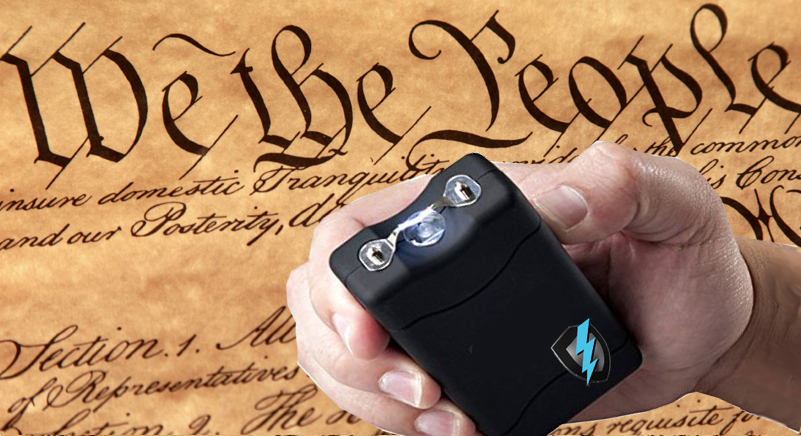MASSACHUSETTS – Three Bay State residents today asked a federal judge to prevent the state from enforcing its stun gun and Taser ban, arguing that their constitutional rights continue to be violated every day the statute remains on the books.

“The Second Amendment to the United States Constitution protects the right to keep and bear arms including non-lethal arms such as Tasers and stun guns, and Massachusetts’ complete ban on the possession and sale of electrical weapons violates this right,” wrote attorneys for the three Bay Staters — Christopher Martel, Donna Major and Madeleine Bates.
The motion for a preliminary injunction asks U.S. District Court Judge Douglas P. Woodlock to prevent authorities from enforcing its stun gun and Taser ban throughout their ongoing lawsuit against the state. The lawsuit, filed in February in federal court in Boston, argues that the stun gun and Taser law is unconstitutional and should be wiped from the books.
If Woodlock orders that Massachusetts authorities are temporarily banned from enforcing the law, it would be a sign that he sees merit in the case. In order to get an injunction, the Massachusetts residents would have to prove, among other things, that they are likely to be successful in their suit.
“Since here, Plaintiffs’ chances of success are exceedingly high, any speculative harm the state may introduce should be given very little weight,” the lawsuit states. “An outright ban on Tasers and stun guns does not serve the state’s interest in public safety, because Tasers and stun guns are actually far less dangerous than firearms.”
The lawsuit was filed on the heels of a U.S. Supreme Court decision last March that showed the law was vulnerable. In that decision, the high court overturned a ruling by the state Supreme Judicial Court that found the Second Amendment does not apply to stun guns.
The Supreme Court decision stopped short of invalidating the statute, but in a concurring opinion Supreme Court Justice Samuel Alito said the law — as a whole — should be tossed.
“Most all other states permit residents to carry Tasers and stun guns for self-defense. That fact undermines any effort by Massachusetts to demonstrate exceptional circumstances,” the motion says. “Electrical weapons in the hands of law-abiding Massachusetts residents do not pose a unique threat to public safety in Massachusetts that does not exist in other states.”
Massachusetts Attorney General Maura Healey’s office, which is charged with representing the state in the case, has not yet responded to the lawsuit but will do so by April 14 after requesting more time.
“The defendant needs additional time to prepare a responsive pleading,” assistant attorney general William W. Porter wrote earlier this month in his request. “Undersigned counsel needs time to review the allegations of the complaint and to closely examine the legal and constitutional questions that it raises.”
This is a developing story…
Source: Bob McGovern, Boston Herald